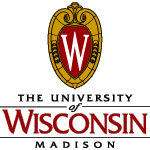Strengthening software self-checksumming via self-modifying code
Jonathon T. Giffin, Mihai Christodorescu, and Louis Kruger.
In 21st Annual Computer Security Applications Conference (ACSAC).
Tucson, Arizona, December 2005.
All student authors.Recent research has proposed self-checksumming as a method by which a program can detect any possibly malicious modification to its code. Wurster et al. developed an attack against such programs that enables code modifications undetectable to any self-checksumming routine. The attack replicated pages of program text and altered values in hardware data structures so that data reads and instruction fetches retrieved values from different memory pages. A cornerstone of their attack was its applicability to a variety of commodity hardware: they could alter memory accesses using only a malicious operating system. In this paper, we show that their page-replication attack can be detected by self-checksumming programs with self-modifying code. Our detection is efficient, adding less than 1 microsecond to each checksum computation in our experiments on three processor families, and is robust up to attacks using either costly interpretive emulation or specialized hardware.
Paper:
[pdf]
[ps]
Slides:
[pdf]
An expanded version of this paper is available as a technical report.
An alternate slideset is available. The alternate slides contain more straightforward technical reporting and omit the position statements contained in the conference talk.

